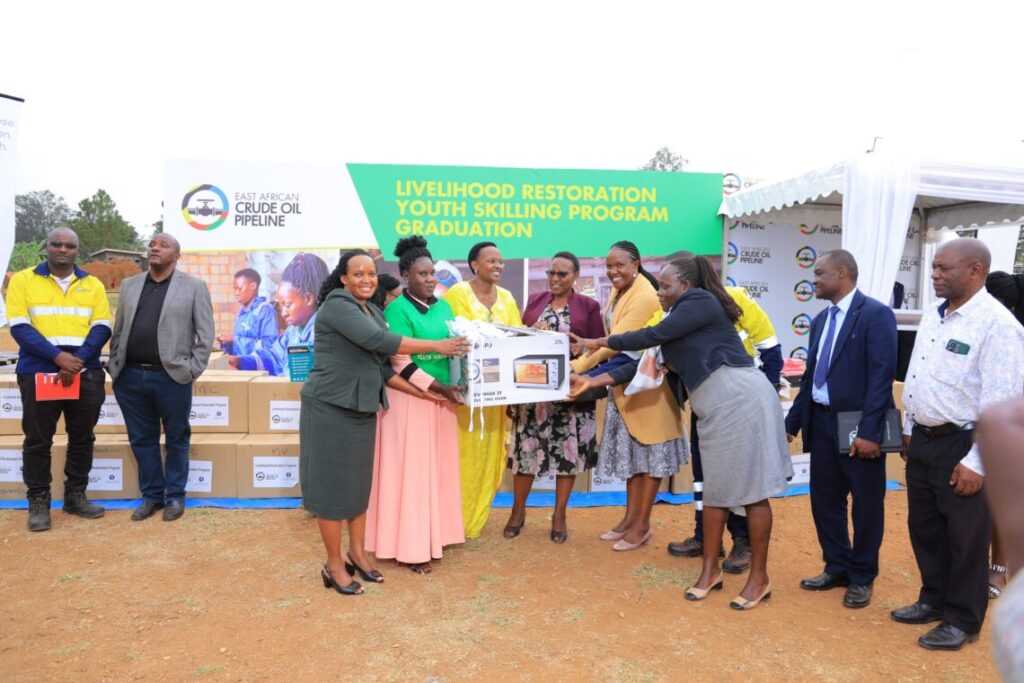
The East African Crude Oil Pipeline (EACOP) Ltd. has trained 456 young people from project-affected households, equipping them with vocational skills to strengthen their economic resilience and open pathways to employment.
The three-month training and one-month internship targeted youth from Gomba, Kyotera, Lwengo, Rakai, and Sembabule districts. Of the 456 beneficiaries, 217 were female. The latest graduates bring the total number of young people trained along the pipeline route to 1,476.
Participants received instruction in trades ranging from motor vehicle and motorcycle mechanics, welding, metal fabrication, electrical installation, plumbing, and carpentry to hairdressing, cosmetology, and construction. Each graduate will also receive starter kits to kickstart their careers.
Rosie Birungi, EACOP’s social performance manager, said the company was honoured to support communities with tangible skills.
“We are greatly honored to empower youth with skills that will help them start their own enterprises and improve household incomes,” Birungi said.
The training, facilitated by EACOP contractor ASIGMA Ltd., covered tuition, scholastic materials, and welfare. Institutions involved included Mummy’s Institute of Beauty and Commercial Studies, St. Charles Lwanga Technical Institute Butende, and Masaka Vocational Training Institute.
Uganda continues to grapple with a high youth unemployment rate of 17%, according to the Uganda Bureau of Statistics (UBOS) National Labour Force Survey 2021. This figure surpasses the national average of 11.7%, underlining the urgency of such programs.
By investing in vocational training, EACOP says it hopes to provide young people with sustainable alternatives to joblessness and empower them to become self-reliant.
The vocational initiative is part of EACOP’s broader Livelihood Restoration Program, which seeks to support households affected by land acquisition for the pipeline.
The program is structured in phases; Phase 1 offers transitional support, such as food baskets, within the first 6–12 months after relocation. To date, 1,949 out of 2,257 eligible households have received this assistance., Phase 2 and 3 focus on long-term solutions, including agricultural improvement and enterprise development. Currently, 2,938 of 3,400 households are benefiting from agricultural support, receiving starter packs with improved seeds and technologies, alongside hands-on training.
Officials say the goal is not only to restore but also to improve the livelihoods of affected families by providing the resources and skills needed to thrive beyond resettlement.